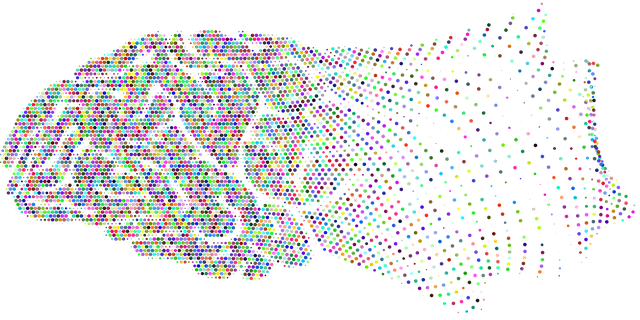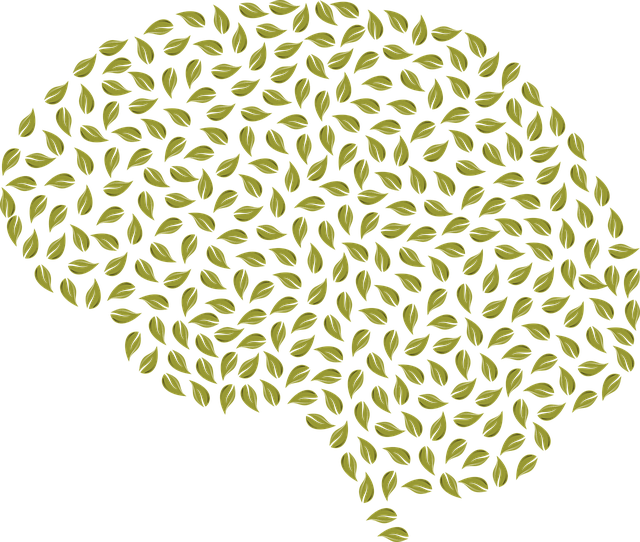Westminster Neuro Disorders Therapy (WNDT) offers a holistic approach to mental wellness, addressing mind-body connections and recognizing neurological disorders as roots of mental health issues. Their evidence-based program combines innovative techniques like Empathy Building and Mind Over Matter principles, fostering resilience in a supportive environment. WNDT's rigorous evaluation methods use standardized tools (e.g., GAF scale) and qualitative feedback to measure progress, improve services, and adapt interventions for diverse needs, contributing to best practices in mental health care. They prioritize cultural sensitivity, risk management, and continuous learning through client check-ins, structured assessments, and self-reflection exercises.
Evaluating mental wellness programs is paramount in ensuring their effectiveness, especially in treating neurodisorders. This comprehensive guide delves into various evaluation methods, offering a detailed look at Westminster Neuro Disorders Therapy as a case study. We explore why assessment is critical, highlighting the importance of measuring success and fostering continuous improvement. From programmatic assessments to popular evaluation techniques, this article provides an insightful overview for professionals aiming to enhance mental health services.
- Understanding Westminster Neuro Disorders Therapy: An Overview
- The Importance of Evaluating Mental Wellness Programs
- Popular Evaluation Methods for Neurodisorder Therapies
- Implementing Programmatic Assessment Techniques
- Measuring Success and Continuous Improvement Strategies
Understanding Westminster Neuro Disorders Therapy: An Overview

Westminster Neuro Disorders Therapy (WNDT) is a pioneering approach to mental wellness that focuses on the interconnectedness of the mind and body. This holistic therapy program recognizes that mental health issues often stem from underlying neurological disorders, which are frequently overlooked in traditional treatment methods. By adopting an integrative perspective, WNDT combines evidence-based practices with innovative techniques to offer comprehensive care. The program’s core philosophy revolves around empowering individuals to take control of their mental well-being through education and self-discovery.
The effectiveness of WNDT lies in its multi-faceted approach, incorporating various strategies such as Empathy Building Techniques and Mind Over Matter principles. These methods aim to enhance patients’ understanding of their conditions while instilling a sense of agency and resilience. In addition, the program facilitates the development of coping mechanisms tailored to individual needs, fostering a supportive environment that encourages growth and recovery. This personalized touch sets WNDT apart in the realm of Mental Health Policy Analysis and Advocacy, ensuring that each client receives targeted support to navigate their neurodisorder-related challenges effectively.
The Importance of Evaluating Mental Wellness Programs

Evaluating mental wellness programs is paramount to ensuring their effectiveness and adaptability to diverse needs. At Westminster Neuro Disorders Therapy, we understand that a one-size-fits-all approach rarely yields optimal results in mental health care. Thus, rigorous evaluation methods are essential to gauge progress, identify areas for improvement, and tailor interventions accordingly. This data-driven approach not only benefits the individuals participating in these programs but also contributes to evolving best practices in the field, fostering a culture of continuous improvement.
Beyond enhancing program quality, thorough mental wellness program evaluations play a pivotal role in cultivating Mental Health Awareness. They provide insights into the impact of various therapeutic modalities and self-care practices, empowering mental health professionals to make informed decisions. Moreover, these evaluations facilitate Risk Management Planning, enabling practitioners to anticipate potential challenges and implement preventative strategies. By prioritizing evaluation, we can ensure that programs remain relevant, safe, and ultimately, life-changing for those seeking support for their neuro disorders.
Popular Evaluation Methods for Neurodisorder Therapies

When evaluating Westminster Neuro Disorders Therapy programs, several popular methods have emerged as best practices. One widely used approach involves standardized assessment tools tailored to specific neurodisorders. These tools help mental health professionals quantitatively measure a patient’s progress over time, providing data that can inform treatment adjustments and enhance therapeutic outcomes. For instance, the Global Assessment of Functioning (GAF) scale is commonly employed to gauge an individual’s overall functioning in various aspects of life.
Additionally, qualitative methods such as clinical interviews and client-centered feedback play a crucial role in neurodisorder therapy evaluations. These techniques allow mental health practitioners to gain deeper insights into patients’ emotional healing processes, cultural backgrounds, and personal experiences. Incorporating Cultural Sensitivity in Mental Healthcare Practice is essential, ensuring that evaluation methods are adaptable and respectful of diverse populations. Moreover, Risk Management Planning for Mental Health Professionals guides the process by establishing safety protocols and ethical considerations, contributing to a comprehensive and patient-centered evaluation framework.
Implementing Programmatic Assessment Techniques

Implementing Programmatic Assessment Techniques involves a systematic approach to evaluating mental wellness programs, ensuring their effectiveness and tailoring them to specific needs. At Westminster Neuro Disorders Therapy, we leverage various assessment methods, including structured interviews, self-report questionnaires, and observation scales, to gain comprehensive insights into participants’ mental health status, treatment progress, and program impact. These techniques allow us to measure changes in symptoms, functioning, and quality of life, providing data-driven evidence for improving our services.
Integrating Compassion Cultivation Practices, as part of our program evaluation, offers a unique perspective by focusing on participants’ subjective experiences and self-perceived improvements. Additionally, the Mental Wellness Podcast Series Production serves as a platform to disseminate findings, educate the community, and foster open conversations about mental health. Furthermore, our Community Outreach Program Implementation enables direct engagement with diverse populations, ensuring that assessment methods are culturally sensitive and accessible.
Measuring Success and Continuous Improvement Strategies

Measuring success and implementing continuous improvement strategies are essential components of any effective mental wellness program. At Westminster Neuro Disorders Therapy, we employ a multi-faceted approach to evaluation, combining qualitative and quantitative methods to assess progress. This includes regular check-ins with clients to gauge their experiences, satisfaction levels, and improvements in symptoms, alongside structured assessments tailored to individual needs. By collecting such data, we gain valuable insights into the program’s effectiveness and identify areas for enhancement.
Additionally, our mental wellness journal prompt exercises encourage self-reflection, allowing participants to track their thoughts, emotions, and behaviors over time. This introspection complements our formal evaluation processes, fostering a culture of continuous learning and improvement. We integrate these findings into risk management planning for mental health professionals, ensuring that we not only address the Mental Illness Stigma Reduction Efforts but also enhance the overall quality of care provided.
The evaluation of mental wellness programs, such as those inspired by Westminster Neuro Disorders Therapy, is a vital step in ensuring their effectiveness and impact. By employing various assessment techniques, from traditional surveys to programmatic analyses, we can gain valuable insights into the success and areas for improvement. Understanding these methods allows for data-driven decisions, ultimately enhancing the quality of care provided to individuals with neurodisorders. Continuous improvement strategies, when implemented, ensure that programs like Westminster Neuro Disorders Therapy stay relevant and adapt to meet the evolving needs of those they serve.














